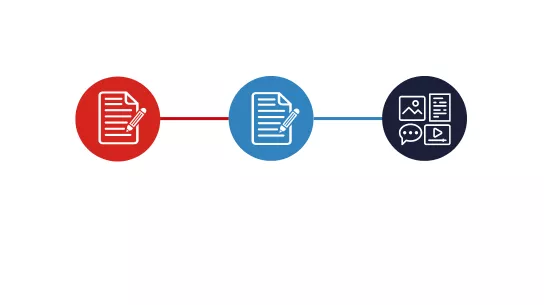Eligibility
Which universities does the scholarship cover?
You can apply to any registered university or institution in The United Kingdom (England, Scotland, Wales or Northern Ireland).
Do I need to have a confirmed offer from my course before applying?
No, but if you are awarded a scholarship, you will need to have a confirmed offer before we can process your award.
Can I apply for funding if my course has already started or is starting before June 2024?
No. Your course must begin in the academic year 2024/2025 to qualify for the Snowdon Master’s Scholarship. Your course must start after July 2024 and before June 2025.
My master’s programme does not follow the usual academic term dates; can I still apply?
Yes. As long as your course begins after July 2024 and before June 2025.
Can I do a distance learning/online course?
Yes, your course can be taught in person, online or as hybrid. However, your course must be taught by a university or institution registered in The United Kingdom (England, Scotland, Wales or Northern Ireland).
Can I study part-time?
- Yes, your course can be taught part-time or full-time.
- Your course can be delivered over any duration. The award will be released in instalments over the duration of your course.
What master’s courses are eligible?
- The course must be a full master’s degree such as MA, MSc, MRes/MPhil, MML and MBA, awarding 180 higher-education credits.
- A postgraduate study programme where you are applying for the master’s year in year one of a longer study programme is eligible, but you cannot apply for the final master’s year of an integrated undergrad/postgrad qualification.
- Master’s programmes that would otherwise be funded by your employer or Access to Work are not eligible.
Is my disability eligible?
We understand that disability is defined differently within different contexts and by individual preference. We cannot provide an exhaustive list or reply to individual queries about specific health conditions, impairments or disabilities. If you believe, based on the information you have read in the eligibility criteria, that you meet the eligibility criteria then we welcome your application.
What evidence of disability do you need?
Please provide a copy of something that shows your name and that you are disabled:
- A letter from your doctor or other relevant medical letter
- A letter from an official source e.g. about your Disabled Students Allowance, Education Health and Care Plan, or other state benefits
- Official documentation e.g. a disabled ID card, Blue Badge, disabled person’s bus pass
Is there an upper age limit?
No, there is no upper age limit, but you will need to demonstrate the scope of your future ambitions in your application.
Can international students apply?
You are eligible to apply if you meet at least one of the following criteria:
- You have higher education home fee status in the United Kingdom (England, Scotland, Wales and Northern Ireland).
- You gained your undergraduate degree in the UK.
If you are awarded a scholarship we may ask to see proof of your eligibility. This should be a copy of your course offer letter which states your fee status, a UK degree certificate or academic transcript.
I have received a Snowdon Trust Grant before, am I eligible to apply?
Yes. A previous a Snowdon Trust Grant does not prevent you from applying for the Master’s Scholarship.
Application process and how to apply
What's the application process? How do I apply?
For information on the application process, please see our process pages.
You can apply here or via the link on our scholarships page.
You can find guidance on filling in the application here.
I meet all the eligibility criteria. Does this guarantee an invitation to submit a stage 2 application?
All eligible candidates can submit a stage 1 application.
Being eligible does not guarantee your progression in the selection process. We expect to receive hundreds of applications. Only those who make the strongest case and whose ambitions align most closely with the intended awardee for this scholarship will be invited to submit a stage 2 application.
Please read our guidance notes carefully when preparing your answers.
Does everyone need to submit a video or prepare a biography?
No. Only applicants who are longlisted (stage 3) will be invited to submit this.
Do I need to submit a written reference?
No. If your application reaches the final shortlist, the Snowdon Trust team will contact your referee and request a reference on your behalf.
Please ensure you have your referee’s permission to share their contact details with the Snowdon Trust, and confirm that they will be available to write you a reference for submission by 31 May 2024.
Can I have personalised feedback on my application?
No. Due to the high number of applications we receive, we regret that we are unable to provide individual feedback to unsuccessful applicants.
Are extensions to the submission deadline possible?
No. The deadline for submitting a stage 1 application is Thursday 29 February 2024 at 5pm GMT. No extensions or exceptions will be considered. We encourage you to submit your stage 1 application early so we have adequate time to process it and invite you to submit stage 2, if you’re successful.
If you are invited to submit a second stage application, the deadline to submit this is Friday 15 March 2024 at 5pm (GMT). No extensions or exceptions will be considered.
Please prepare your answers and submit your application with plenty of time, especially if you are likely to experience technical or environmental issues.
General questions
Are there restrictions on receiving or using my scholarship award?
We don’t set any requirements or restrictions on your ability to work or study alongside your master’s. However, we offer a generous scholarship with the intention that you can focus entirely on your studies.
We don’t make any restrictions on other funding you can apply for. Please note, if you are employed and your employer is due to fund your master’s programme you cannot apply for this scholarship.
You do not need to repay any of the scholarship.
There are no limits or expectations on how you use the maintenance stipend part of your scholarship. You’ll need to submit a report to us at the end of each term to release the next instalment of your allowance.
I couldn't make the Q&A session on 15 January 2024. Was it recorded?
Yes, the session is available to watch here.
How much competition is there? What are my chances of receiving a scholarship?
This is a highly competitive award. The number of applications we receive has been growing each year. In 2023, we received around 800 applications for up to 12 scholarships.
This year, we have updated the eligibility criteria to make the scheme more manageable for both applicants and staff, with the aim of improving the probability of winning an award.
What is the difference between the Snowdon Master’s Scholarships and Snowdon Trust Grants programmes?
The Snowdon Master’s Scholarship has been designed to identify and accelerate exceptional disabled students through higher education, creating the influencers of the future. Successful recipients will receive up to £30,000 divided between a contribution towards fees and an allowance/maintenance stipend.
Snowdon Trust disability-related study costs grants typically contribute towards accessibility costs not covered by statutory funding. These are costs that disabled students need to pay in order to get to their lectures, access study materials or live on campus. The maximum grant value is £5,000.
What is the Disabled Leader’s Network (DLN)?
Please click here to find out more about the Disabled Leaders Network.
Longlisted applicants of the Snowdon Master’s Scholarship are invited to join the DLN.
Can I speak to a previous awardee?
You are welcome to read about some of our previous awardees and finalists online https://disabledleadersnetwork.com/new-members-in-2023/
Check out some advice from Maria, one of last year’s Scholarship winners, in this blog post, and watch our Q&A session with previous awardees here.
What do you mean by exceptional?
This is a highly competitive award so when we talk about exceptional, we are looking for applications from individuals who have something special to offer.
We are searching for remarkable individuals who have the capability and qualities to become an outstanding leader, role model or pioneer in their area of expertise and beyond. Individuals with the ability to create change and influence others. This could include excellence within a chosen field of study, or the ability to demonstrate leadership more widely through the workplace, extracurricular activities and leading by example.
If you are worrying about whether you are exceptional enough, remember, that’s something good leaders do a lot of!
What do you mean by excellence within a field of study?
We are searching for outstanding candidates who are high achievers in their field.
We are searching for people that are truly passionate about their chosen subject. Excellence could be measured by results, performances, exhibitions, or any other subject related experience. Projects, extracurricular and workplace experience all count towards subject related experience.

